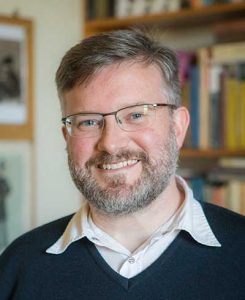As a university with a proudly regional focus, it’s worth considering just what we mean by that term. For most, it encompasses the diverse social and environmental region that is our homebase: New England, NSW, Australia. But the regional context of the Univeristy of New England has always stretched well beyond that, and connected us to other regions, nationally as well as globally.
This edition of Research+ highlights our engagement with Australia’s place in a much broader region – Asia and Southeast Asia – and the ongoing transnational linkages forged between UNE researchers and their counterparts in a myriad of Asian contexts. 2017 is also the year that marks the 50th anniversary of ASEAN, the Association of Southeast Asian Nations. UNE’s Asia Centre (now the Asia-Pacific Centre) has nurtured many of these linkages since its foundation in 1992, but they extend further than any one School or Centre, and inform the scholarship of scholars from across the diverse disciplines of the University. UNE’s Vice-Chancellor, Professor Annabelle Duncan, underscores the importance of these linkages and partnerships with her regular annual visits to the region, in 2017 including visits to Vietnam, Malaysia, Singapore, Indonesia and the Philippines.
A special research strength of UNE in this area is what might be called ‘deep time’. Not only the tectonic and geological concept explored so expertly by the likes of Ian Metcalfe (Earth Sciences) and Marissa Betts (Palaeontology), but also the ancient spiritual dimensions of the Australian-Asian connection epitomized by the work of Mun-keat Choong (Studies in Religion).
So too, contemporary issues find themselves in sharp focus at UNE: the environmental dimensions of the ongoing strife in Myanmar form the cutting-edge of research by Johanna Garnett (Peace Studies). Amarjit Kaur (UNE Business School) has been considering the politics of people-movement in Southeast Asia, in historical, legal, and economic terms.
Across the Himalayan states, UNE has established enduring relationships with Nepalese and Bhutanese researchers (in the latter case, through the pioneering work of the School of Education). Herein, DB Subedi (Peace Studies) and Phuntsho Thinley (Environmental Sciences) provide a fascinating insight into the breadth and scope of their work in disparate fields.
Rounding-out this special issue, members of the Saruq al-Hadid Archaeological Research Project (SHARP) detail their successes in Western Asia (exploring the heritage of ancient Arabia).
Closer to home, we hear from PhD candidate Michael Brogan (Arts), whose research into indigenous film and film-making is bound-up with his personal history and passion for the craft.
Dr Garnett has worked alongside local villagers, and with young adults from a number of ethnic groups from within Myanmar, assisting them to develop alternative sustainable development practices and environmental education programs. For example, the Network for Environment and Economic Development (NEED), a grassroots organisation that has built an eco-farm and residential school in the south of the country. Such local initiatives are examples of socio-ecological transformation occurring at the grassroots level around the world, and which sponsor participatory democratic structures and processes as well as alternative agricultural practices. Dr Garnett believes that such work is vital in light of growing environmental security issues and climate change, and states that ‘there is potential in these inter-ethnic and multi-ethnic initiatives worked out by young people, for addressing current and future conflicts based on environmental issues’.
Associate Professor Richard Scully
Chair of Research
School of Humanities


